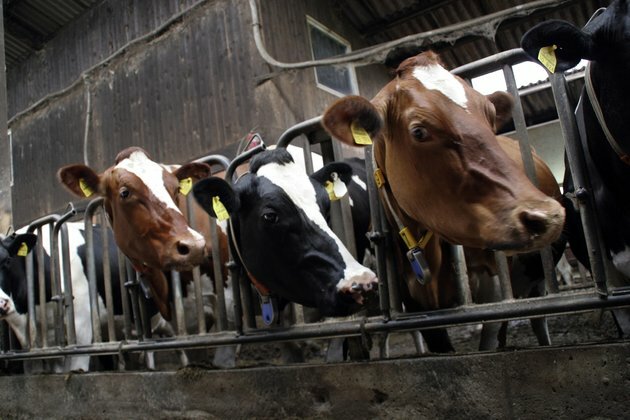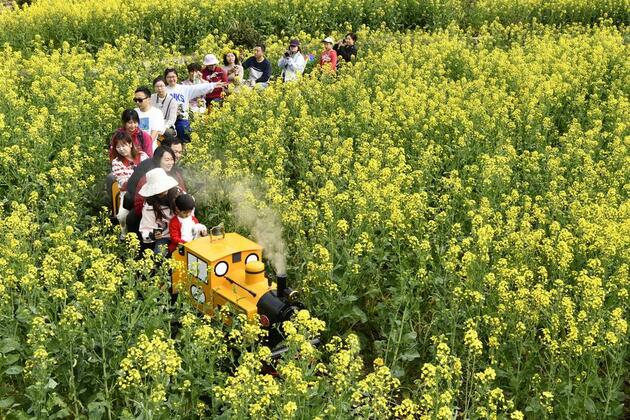Looking forward to a future without factory farming
The Conversation
12 Jul 2020, 18:08 GMT+10

Corporate animal agriculture is in crisis, and its days are numbered. Factory farming and industrialized animal slaughtering are being recognized as dangerous for workers' health, as potential causes of the next pandemic and as both ethically and environmentally unsustainable.
Early numbers suggest noteworthy increases in the purchase of plant-based foods during the pandemic. New vegan products are being brought to market almost weekly. And advancements in cultured "clean" meat may soon result in mass production.
These technological innovations mean that meat can be created for those who wish to consume it without needing to kill animals. Diverse investors, including Bill Gates, Richard Branson, Leonardo DiCaprio and leaders of major agribusinesses, recognize the opportunity to more efficiently and sustainably produce products. As a result, we will see a serious decline - if not the complete elimination - of industrial animal agriculture.
Given its significant contributions to climate change and the depth and breadth of the animal suffering it causes, the demise of factory farming will have many social benefits. New humane jobs will be created in urban areas developing food, undoubtedly. But what will happen to rural economies and to farmed animals?
Fewer but happier animals
The end of factory farming will lay the foundation for a rural resurgence and the development of more just and sustainable communities. And there will be fewer but healthier and happier animals not destined for slaughterhouses.
1. There will be a revival and reshaping of family farms.
Factory farming has led to a steep and continuous decline in the number of family farms. In contrast to the rigid corporatized and mechanized status quo, the end of industrial animal agriculture will be a boon for family farming and a meaningful chance to diversify.
Canada is already a world leader in pulse proteins that include lentils and chickpeas. There will be new demand for organic and veganic farming, more plant-based crops and the ingredients needed for the new lab-created products. Some consumers may still want meat from dead animals, so small-scale animal farming may find a market.
Boutique dining tourism that brings people onto farms and face-to-face with food cultivation could also thrive. Ideally, the well-being of the migrant workers who make so much fruit and vegetable farming possible will be taken much more seriously, too. This is sorely needed.
Read more: Rethinking the boundaries between economic life and coronavirus death
2. Green care will be expanded.
The term green care isn't well known yet, but it makes sense: it refers to a range of organized and formal beneficial interactions with nature. Animal-assisted therapy, therapeutic horticulture and care farms are all examples of green care.
Farms can be re-imagined as places for children's and adults' learning, health care and job training. This will both provide valuable services and generate new green and humane jobs of different kinds in rural communities.
Some of these farms already exist, and normally involve out-of-pocket fees in countries like Canada. The removal of factory farms from the rural economy will create new opportunities to more deliberately and thoughtfully expand green care, regulate it and integrate it with existing education, health care and One Health programs akin to what is being done in northern Europe. This would make it more accessible, diverse and equitable.
3. Farm animals will be raised for pleasure.
Many people already work and interact with horses for leisure, sport, companionship and sheer joy. Some similar opportunities exist for farmed animals like chickens, rabbits, goats, pigs, cattle and sheep.
Sub-cultures can celebrate and showcase heritage breeds, for example, and the beauty of these animals - without the subsequent death sentence.
More farms may also become non-profit sanctuaries where animals can flourish without any expectations.
4. Some rural spaces will be rewilded.
As British writer George Monbiot and others have argued, there are many environmental reasons to allow some areas to regenerate and be repopulated with native plant and animal species.
Known as rewilding, it could allow for certain carefully planned opportunities for expanded recreation and learning in the country (hiking, birding) and some modest, strategic eco-tourism, including Indigenous-led initiatives and partnerships.
But definitively returning some land to other species is one small way to begin to make amends for the immense damage we have done to animal families, cultures and habitats.
Sustainable, vibrant spaces
In contrast to today's large, windowless facilities that intensively confine hundreds of millions of animals indoors and litter Canada's rural landscapes, rural regions would become more sustainable and vibrant spaces for humans and animals to thrive and co-exist.
Rather than harming rural economies, the end of factory farming is an invitation to revive reciprocal practices as well as develop compelling new possibilities rooted in interspecies respect. It is a clear opportunity to create new income sources and humane jobs for diverse people.
After factory farming, we will all be better off.
Author: Kendra Coulter - Chancellor's Chair for Research Excellence; Chair of the Labour Studies Department; Member of the Royal Society of Canada's College of New Scholars, Artists and Scientists; Fellow of the Oxford Centre for Animal Ethics, Brock University 
 Share
Share
 Tweet
Tweet
 Share
Share
 Flip
Flip
 Email
Email
Watch latest videos
Subscribe and Follow
Get a daily dose of International Travel News news through our daily email, its complimentary and keeps you fully up to date with world and business news as well.
News RELEASES
Publish news of your business, community or sports group, personnel appointments, major event and more by submitting a news release to International Travel News.
More InformationBusiness
SectionTo meet US AI energy surge, Schneider Electric invests $700 million
ANDOVER, Massachusetts: As artificial intelligence drives up energy demand across the United States, Schneider Electric is making a...
Americans grow gloomy on finances as confidence declines further
WASHINGTON, D.C.: U.S. consumer confidence continued to drop in 2025, hitting its lowest level in 12 years as more Americans worry...
Waymo gears up for driverless expansion in Washington, D.C.
WASHINGTON, D.C.: Alphabet's self-driving division Waymo is preparing to expand its driverless ride-hailing footprint to the heart...
Regulatory win in India paves way for Starlink's expansion
BENGALURU, India: A major regulatory breakthrough in India could mark a turning point for Starlink, Elon Musk's satellite internet...
U.S. stocks plummet on Trump trade policies, techs worst hit
NEW YORK, New York - Renewed fears about inflation, and U.S. Donald Trump's trade policies say American markets take a deep dive Friday....
Segway recalls 220,000 scooters over fall hazard
NEW YORK CITY, New York: Segway is recalling about 220,000 scooters in the U.S. because of a safety issue that can cause riders to...
Travel and Tourism
SectionCarnival cruises past earnings forecast, raises profit outlook
MIAMI, Florida: Strong demand for cruise vacations is helping Carnival Corp sail past earnings expectations and lift its annual profit...
SpiceJet flight from Jaipur to Chennai lands safely after tyre tread loss
Chennai (Tamil Nadu) [India], March 30 (ANI): A SpiceJet flight, SG-9046, travelling from Jaipur to Chennai, which experienced an issue...
Flower-viewing tourism gets tech boost
Tourists ride a sightseeing train through a sea of rapeseed flowers at a scenic spot in Wuyuan County, east China's Jiangxi Province,...
District administration bans sale of meat, eggs during Navratri in MP's Maihar
Maihar (Madhya Pradesh) [India], March 29 (ANI): The Maihar district administration has banned the purchase and sale of meat, fish,...
Chinese airlines to operate Chittagong-Kunming flights
Dhaka [Bangladesh], March 29 (ANI): China Eastern Airlines has planned to operate flights from Bangladesh's port city of Chittagong...
Karnataka CM urges PM Modi to declare Rani Chennamma's Samadhi a national monument
Bengaluru (Karnataka) [India], March 29 (ANI): Karnataka Chief Minister Siddaramaiah has written to Prime Minister Narendra Modi, requesting...













